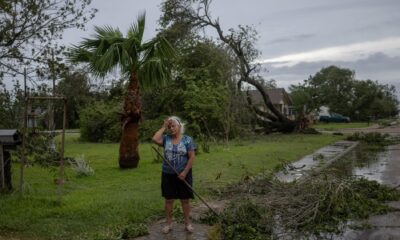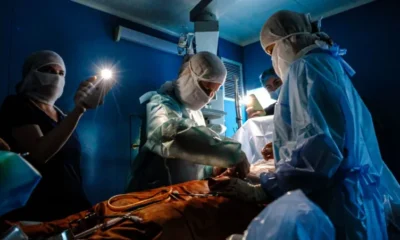It’s being billed as the largest vaccine safety study in Canadian history — and the numbers show why.
Canadian National Vaccine Safety (CANVAS) Network is looking for 400,000 participants per COVID-19 vaccine to see whether there are any adverse effects, in comparison to a control group.
Read more:
Halt on AstraZeneca use doesn’t mean vaccine is unsafe, Nova Scotia’s top doctor says
The study includes people across the country — with Nova Scotia and Prince Edward Island as the two Maritime provinces taking part.
“The only way we can really track those rare events is if we recruit a lot of people,” said Dr. Jennfer Isenor, a professor and researcher with Dalhousie University in Halifax, who is the regional investigator with the study
“I think it reinforces the importance of CANVAS and actively surveilling vaccine safety.”
In typical years, the CANVAS Network conducts surveillance for vaccines ranging from the seasonal influenza, to newer vaccines such as the H1N1 influenza vaccine in 2009.
Read more:
AstraZeneca COVID-19 vaccine not recommended for those under 55, NACI says
On Monday, Canada’s National Advisory Committee on Immunization (NACI) recommended against using the AstraZeneca vaccine in people under the age of 55, following reports out of Europe of rare instances blood clots in some people who received the vaccine.
The news has thrust vaccine safety into the forefront, and Isenor says that’s the kind of answers investigators are seeking to find.
“The intention is to look for those less common adverse effects that are not seen in randomized control tests that are done,” she said.
“If anything is seen — that you can make decisions around if you’re going to pause a program and look a bit deeper if anything’s going on.”
But far from creating concern, she says studies such as theirs can be reassuring, by providing regularly-released data.
“It can also serve to reinforce vaccine safety,” she said.
“Events can be quite rare.”


Participants who want to take part can register online and fill out an online survey eight days after receiving their first dose. A second survey takes place eight days after the second dose, and then a final survey will be sent out six months after that.
Depending on what adverse effects patients are feeling, a nurse may reach out for more information.
As well, people who have not ben vaccinated are asked to sign up to become part of a control group.
“It is a great opportunity to participate in helping vaccine safety,” Isenor said.
She says she expects the study will be a long-term project that could last two years.
Must See
-




Entertainment
/ 3 weeks agoFaveSzn’s Revelation: Dating Choirmaster at 10 and Sexual Curiosity
Nigerian singer, Chidozie Ugochinyere, popularly known as FaveSzn, has revealed that she once dated...
By Flying Eze -






Europe
/ 3 weeks agoWhy Hungarian Prime Minister Orban visited
Two months later, the leaders of China and Hungary met again. Hungarian Prime Minister...
By Flying Eze -






News
/ 3 weeks agoThree dead and millions without power as Tropical Storm Beryl hits Texas
Man, 53, and woman, 74, killed by fallen trees and third person drowns amid...
By Flying Eze



